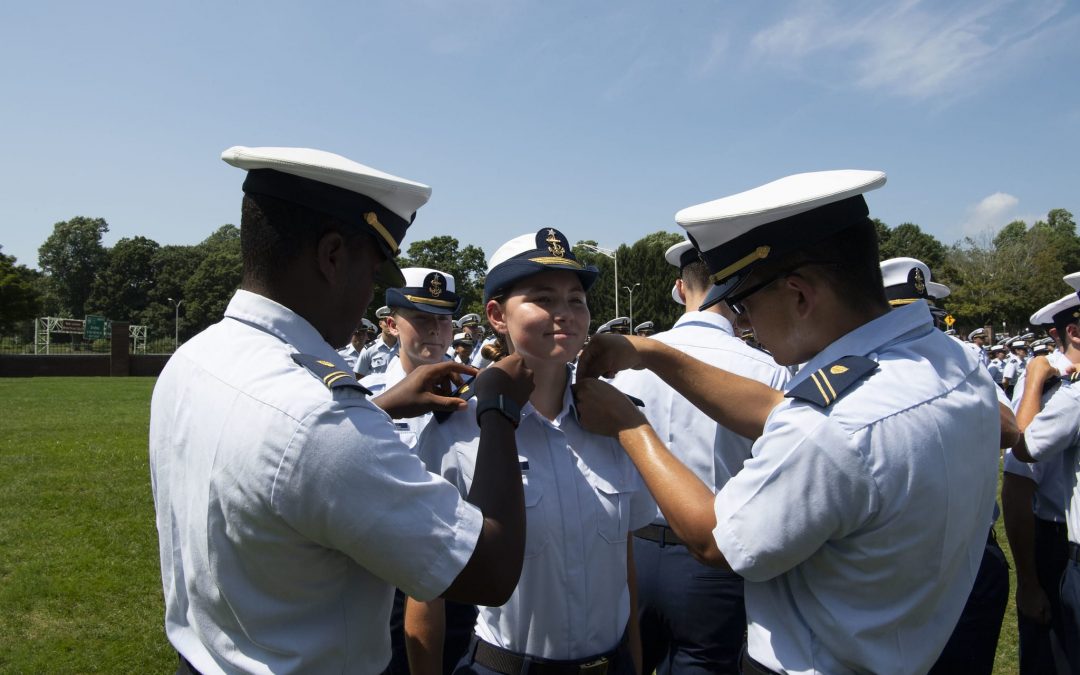Leading with Character: Mentoring Misperception #3
Mentoring Misperceptions
- Mentors must look like you
- Mentors must be senior to you
- A mentor will make you successful
Although I’m a strong advocate for mentoring, both up and down the chain of command, I worry when I see young people competing for senior, influential mentors. They’ve been given the impression that’s the key to success. I once attended a mentoring session sponsored by a well known national affinity organization. I was mentoring one table of attentive young people and a senior male officer (senior executive) was mentoring another. I heard him advise the young leaders to find the right senior mentor, then “get in the elevator with her or him and ride it to the top.” I was dismayed to hear a senior person utter that statement in front of impressionable young people. He could not have been more wrong.
I’ve witnessed junior people who, unwisely, put too much weight on a mentoring relationship with a more senior leader, thinking they have it made. Then hubris creeps in, often accompanied by a haughty attitude and sometimes a decline in performance. They lose the respect of those around them and rely on their proximity to their mentor as a crutch. Inevitably, when the senior leader retires or moves on, they’re left without support and must learn to stand on their own. Those individuals are unlikely to succeed.
Contrary to what some may believe, the role of mentors is not to use their influence to give mentees an advantage over others, or to snowplow their road to success. Rather, it’s to help their mentees reach their full potential.
As someone who has mentored many leaders, I believe what they need most is timeless advice on how to approach obstacles, confront challenges, and recognize opportunities. While serving as executive officer on board a Coast Guard cutter, the operations officer, Mark, reached a key decision point and approached me for career advice. He had been selected for promotion and would rotate into a new job the next summer. Mark and I sat down to discuss his career options. He began by asking my thoughts on what follow-on assignment he should pursue to best advance his career. I let him know we needed to consider other factors in evaluating what he should do next.
How to Mentor
During my years working in the officer personnel management system counseling hundreds of officers, I discovered advising another person is an art, not a science, and requires getting to know the mentee on a deeper level. The advisor must first fully understand the mentee’s status and goals. Important points to consider include whether the person is on active duty or in the reserve, how many more years he or she has until retirement, the timing of the next promotion point, whether he or she has earned an advanced degree and other pertinent career and personal information.
To aid in our discussion, I started up a spreadsheet to capture Mark’s assignment history matched up with his past and prospective promotion timelines, including retirement eligibility. That’s an important step because certain career milestones must be attained at or by certain paygrades. For instance, as a surface afloat operator, Mark needed to plan on competing for an executive officer assignment at the next level.
The career discussion tool provided us a means for reflecting and projecting to develop different scenarios based on Mark’s long-term personal and professional desires. Since he desired to pursue a full career in the Coast Guard, we evaluated scenarios prioritizing professional development. We compared options, discussing the upsides and risks each posed for his career progression.
In the end, Mark still had to make tough choices, but his choices were much clearer and better informed. He didn’t need my advice on what to do; he needed me to help shape and focus the alternatives so he could make a sound decision.
Mentoring Advice
My advice to mentors is, ask mentees where they see themselves in ten, twenty, thirty years and at retirement. What is their vision of success? Do they want a steady income and time at home with family, or do they want to compete to make it to the top of the organization? People need to look beyond the present to consider the future because where they see themselves finishing will influence the career and personal choices they make along the way.
My advice to mentees is, actively seek diverse mentors who will offer a broad perspective. You shouldn’t hesitate to ask for mentoring and should continually seek chances to grow and learn from others. Mentees should clearly convey their career goals and objectives and ask a mentor for help in shaping and evaluating alternatives. But, you should never expect your mentor to pave the way for a plum job. Regardless of all the benefits that can flow from a mentoring relationship, you are responsible for your own success or failure.Look in the mirror. As a mentee, have you taken responsibility for your own success or are you counting on someone senior to lift you to the top?
Please join me again next week for more on Leading with Character.




Mentors can really help by sharing their personal stories. Encouragement is important. Being accessible and perceptive are great mentor attributes. Embracing opportunities, taking risks, overcoming obstacles, and focusing on outcomes are all important steps on the pathway to achieving vision.